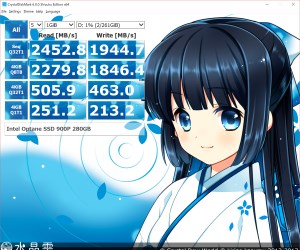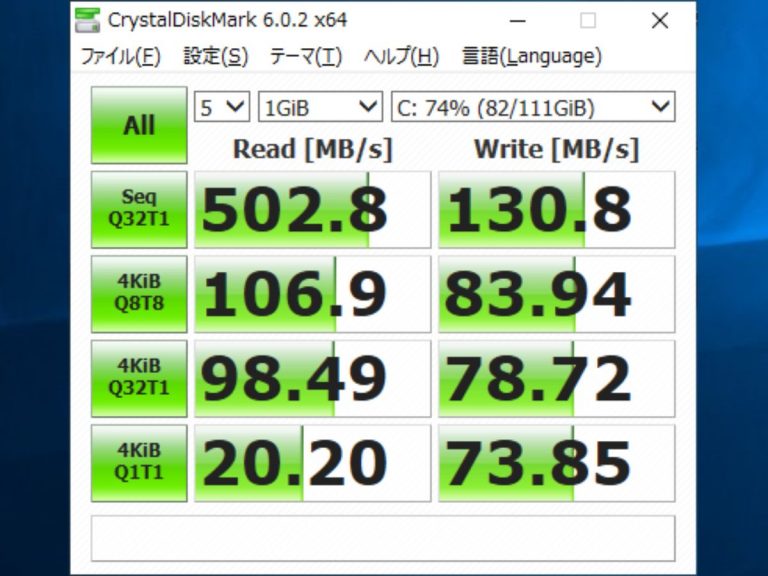

I'm told that some HDDs increase performance when this happens because of the way their controller logic works but I think this mostly applies to SSDs not mechanical drives. CrystalDiskMark is designed to test the performance of your hard drives quickly.

This is faster than 4k because there's more data read/written with less movement of the head.Ĥk: The same as above but instead of reading/writing the test data in 512KB 'chunks' it reads/writes in 4KB chunks.ĤkQD32: The same as 4K but there are more requests for the data sent to the HDD controller. This is fastest because the head doesn't have to move about a lot as all the sectors are adjacent.ĥ12k: CDM read/writes to random sectors on the drive, but it reads/writes 512KB of data at a random point, then moves to the next random point. That is to say it starts writing on a sector and then writes the next part on the adjacent sector and so on. Sequential: Crystal disk mark (CDM) reads/writes whatever file size you choose when you start the test sequentially. Measure random 512KB, 4KB, 4KB (Queue Depth32) reads/writes speed.

CrystalDiskMark Features: Measure sequential reads/writes speed. Based on Microsofts MIT-licensed Diskspd tool, this graphical benchmark. Currently, the program allows you to measure sequential, and random read/write speeds. CrystalDiskMark is an open source disk drive benchmark tool for Microsoft Windows.
#CRESTAL DISKMARK FREE#
I'm going to take a stab at it, but i'm no expert so if anyone really knows please feel free to correct me. CrystalDiskMark is designed to test the performance of your hard drives quickly.


 0 kommentar(er)
0 kommentar(er)
